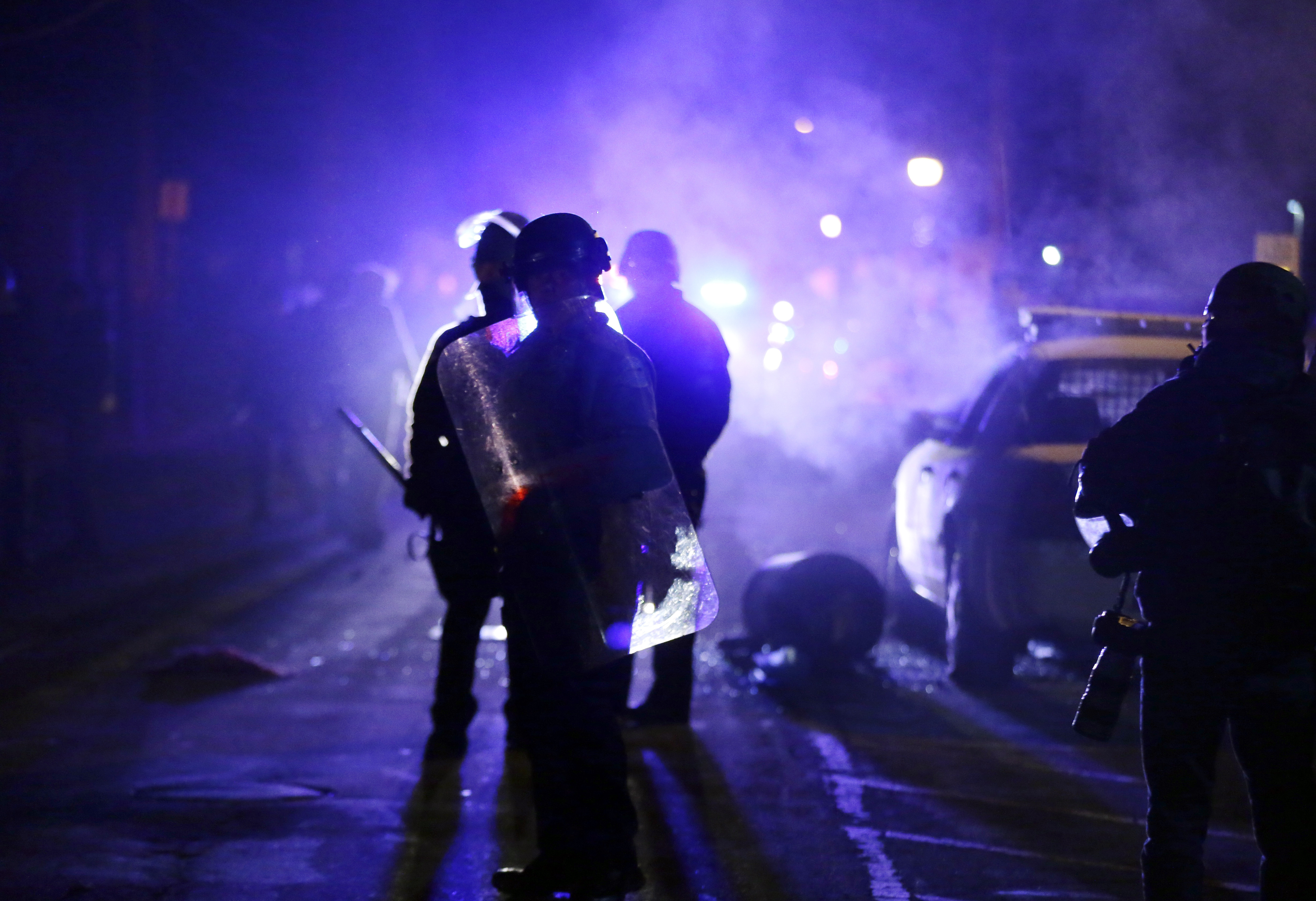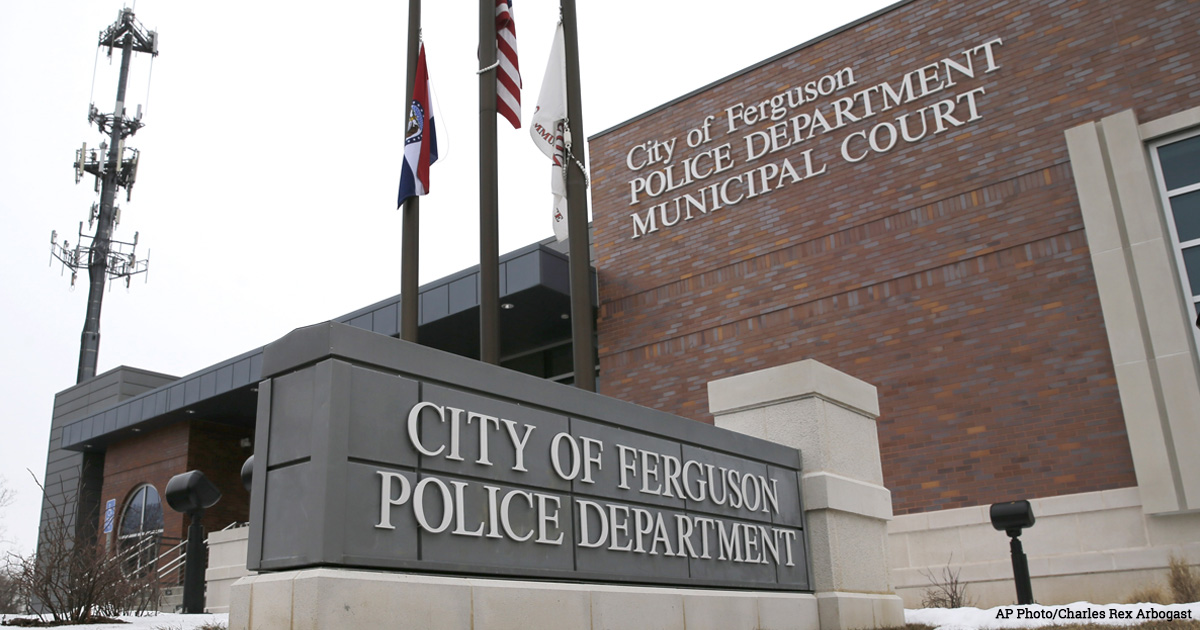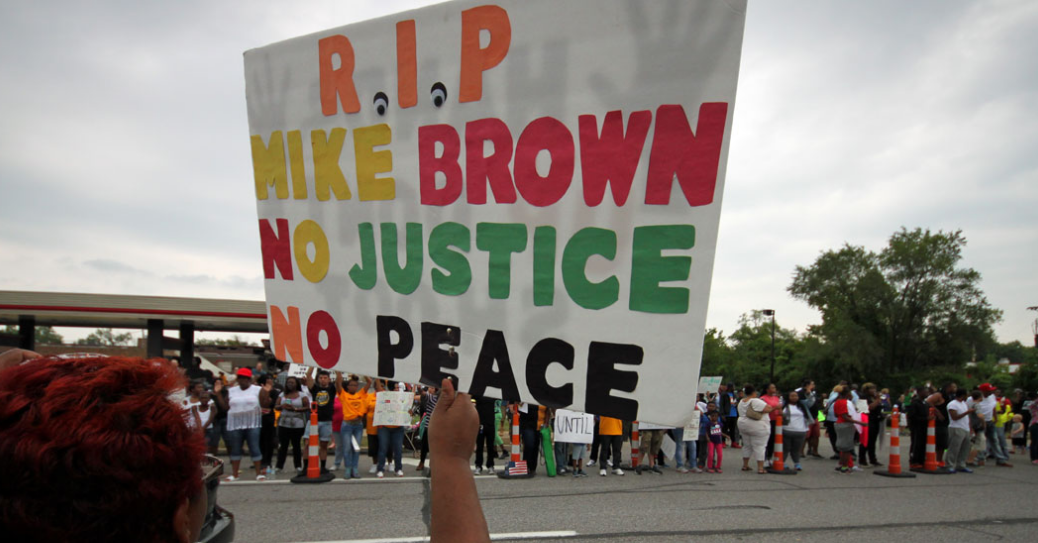Michael Brown Video Raises New Questions

By:
Ten hours before 18-year-old Michael Brown was seen taking a pack of cigarillos and pushing a convenience store clerk in Ferguson, Missouri, he allegedly sold another clerk at the store some marijuana in exchange for the pack, according to newly released video.
When Ferguson police officer Darren Wilson stood before a grand jury months after fatally shooting Brown on August 9, 2014, jurors weren't given the opportunity to see what happened before the confrontation. Neither had the public — until the footage was obtained by filmmaker Jason Pollack, who debuted it in a documentary, "Stranger Fruit," at the South by Southwest film festival on Saturday.
The only publicly available video of Brown at the convenience store that jurors could have seen was released by the Ferguson Police Department just days after the shooting, on August 15. Reason's Jacob Sullum called it an "irrelevant attempt at character assassination."
Now, more than two years after the police shooting, questions are being raised, like: Why didn't officials release the video? And could these details have altered the outcome of the case, which saw Wilson exonerated?
 AP/Charlie Riedel - apimages.com
AP/Charlie Riedel - apimages.com
Pollack has accused officials of suppressing evidence in an effort to make Brown look bad. "They destroyed Michael’s character with the tape, and they didn’t show us what actually happened," he told The New York Times. The St. Louis County Police, which investigated the police shooting, said the new tape was "irrelevant" because their investigation only concerned the encounter between Wilson and Brown.
Vox's German Lopez pushed back against that response, writing "if that’s the case, why was the old surveillance video of the alleged robbery released in the first place? How was that old video relevant to the shooting if this newly released video isn't?"
But the question of the new video's relevance is less clear from a legal standpoint.
 AP Photo/Charles Rex Arbogast - apimages.com
AP Photo/Charles Rex Arbogast - apimages.com
A grand jury declined to charge Wilson on November 24, 2014 after determining that the officer had been reasonably fearful for his life — based partly on witness testimony that the teenager had reached into Wilson's patrol car with the intention of taking his firearm — and that the use of lethal force was thus justified. Wilson was responding to a call about a robbery just before the shooting, and he said Brown matched the suspect's description.
The officer hadn't seen any part of the convenience store surveillance tape. What limited information he did have before approaching Brown had been transmitted from a dispatcher.
Critics of the grand jury ruling have cited the negative police narrative surrounding Brown as influential in their decision not to charge Wilson with any of the five charges brought before them, which included first-degree murder and involuntary manslaughter. The decision to release surveillance footage of Brown shoving the convenience store clerk was of particular concern to protestors.
The way prosecutors handled the grand jury has also been criticized, with many legal observers suggesting the intend was never to get the indictment needed to take the case to an actual trial. The New Yorker's Jeffrey Toobin, for example, described grand juries as "tools of prosecutors" — meaning prosecutors tend to get indictments if that's what they want. In Brown's case, instead of presenting only evidence that would help the prosecution's case, as is typical, the prosecutor allowed evidence, substantiated or not, that tarred Brown and exonerated Wilson.
As Toobin wrote:
"[T]here is little doubt that [St. Louis County Prosecuting Attorney Bob McCulloch] remained largely in control of the process; aggressive advocacy by prosecutors could have persuaded the grand jurors to vote for some kind of indictment. The standard for such charges — probable cause, or more probable than not — is generally a very easy hurdle. If McCulloch’s lawyers had simply pared down the evidence to that which incriminated Wilson, they would have easily obtained an indictment."

McCulloch denied that the video would have impacted the grand jury's ruling in any way during a press conference on Monday. He also accused Pollack of unfairly editing the footage.
That claim was echoed by Jay Kanzler, a lawyer representing the Ferguson convenience store. "There was no understanding. No agreement," Kanzler told the Times. "Those folks didn't sell him cigarillos for pot. The reason he gave it back is he was walking out the door with unpaid merchandise and they wanted it back."
Kanzler he would release an unedited version of the surveillance footage on Monday in order to prove that the Aug. 9 incident was a robbery. That video has not been released.
